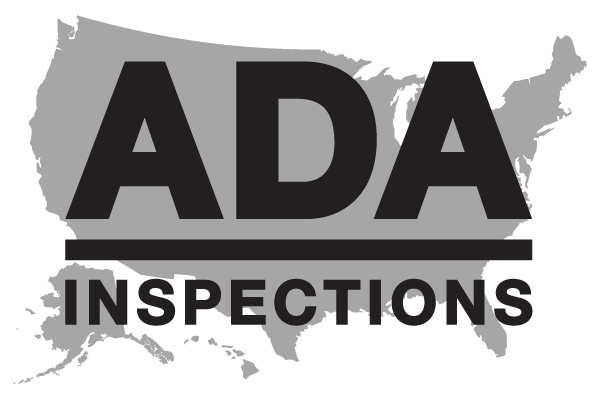Food Service Counters have unique Standards in the ADA Laws. 2010 ADA Standards 227.3, 227.4, 227.5, and 904 cover the accessibility requirements of Food Service Counters. If you observe a building or food service counter that is not ADA compliant and you would like to know how to proceed, please see the link at What To Do When A Building Is Not ADA Compliant or Accessible.
Read MoreThe Tennessee Justice Center (TJC) lists funding options for medical care for children in Tennessee with medical needs.
Read MoreStarting Monday, November 23, 2020, families can complete the online self-referral form through TennCare Connect to begin applying for the Katie Beckett program. Get more information on the new program here. A Certified Aging in Place Specialist (CAPS) consultant can help with the design and installation of aging in place home modifications for children with medical needs.
Read MoreCheckout aisles have unique Standards within the Americans with Disabilities Act (ADA). 2010 ADA Standards 216.11, 227.2 and 904.3 cover the accessibility requirements for checkout aisles. Checkout aisle installations must comply with ADA Standards for height, width, numbers, and signage.
Read MoreNew Construction versus Alteration of a building. This issue comes up a lot in the Americans with Disabilities Act (ADA) world. An alteration is defined in the 2010 ADA Standards as “A change to a building or facility that affects or could affect the usability of the building or facility or portion thereof.”
Read MoreSeyfarth Shaw LLP posted an article on November 17, 2020 entitled How Will DOJ Enforce Title III of the ADA in a Biden Administration? The synopsis of the article is that a Biden Administration Department of Justice (DOJ) will likely bring higher engagement and more aggressive enforcement on Americans with Disabilities Act (ADA) Title III issues.
Read MoreThe Americans with Disabilities Act (ADA) laws for menu boards and displays commonly found in quick service resturants can be difficult to use for people with impaired vision. Owners and operators of restaurants would do well to welcome the disabled community into their facility by incorporating the guidance in Standard 703 into their menu board design.
Read MoreThe Americans with Disabilities Act (ADA) laws apply to fixed or built-in elements, not non-fixed elements. Fixed or built-in elements must comply with the ADA laws. Elements that are not fixed into position or built-in do not have to comply with the ADA laws. In the spirit of the ADA laws elements that are not fixed or built-in should be placed in locations that comply with the Standards, if feasible and reasonable.
Read MoreADA Laws for self service displays and shelves in retail stores can be confusing depending on the purpose of the shelving. If your facility offers food for patrons make sure you have ample methods in place so disabled individuals can have the same access to goods as individuals who are not disabled. Signage encouraging individuals to ask for assistance may be the most cost effective method to provide this service and avoid discrimination.
Read MoreIn the Americans with Disabilities Act (ADA) there are several different kinds of counters, each with its own rules and requirements. Although counters can have a different function and different ADA requirements, there are some common ADA requirements that apply to all counters. The different kinds of counters include: check out aisles, sales and service counters (all kinds), food service lines, check-in/ coat check counters, counters at service windows, customer service counters, ordering, pick-up & drop-off counters, other types of service or sales counters to include display/ exhibit counters only if they function as a sales/ service counter.
Read MoreThere are specific Americans with Disabilities Act (ADA) laws for accessible routes in restaurants, cafeterias, and bars. If you observe a building that is not ADA compliant and you would like to know how to proceed, please see the link at What To Do When A Building Is Not ADA Compliant or Accessible.
Read MoreADA lawsuits happen frequently. Appoint, hire or contract with an ADA coordinator (ADAC). The courts have very little patience with businesses or government entities (defendents) who, with or without intent, allow their practices or facilities to violate the ADA laws.
Read MoreIf you observe a school, building or entity that is not compliant with Title III of the Americans with Disabilities Act or Fair Housing Act and you would like to know how to proceed, please call Richard at 615-752-0060, or see the link at What To Do When A Building Is Not ADA Compliant or Accessible.
Read MoreThrough its collection of brands, ANGI Homeservices (ANGI) is creating the world’s largest digital marketplace for home services, connecting millions of homeowners across the globe with home service professionals. ANGI Homeservices is formally Angie's List and Home Advisor.
Read MoreThe Ninth Circuit Court of Appeals adopts a burden-shifting framework for analyzing claims involving the removal of pre-ADA barriers which requires the plaintiff to “plausibly show how the cost of removing the architectural barrier at issue does not exceed the benefits under the circumstances.”
Read MoreHome improvement company Lowe's Accessible Home has home improvement features for safer homes. This department at Lowes is offering tips to adapt your home as you age and features to improve mobility for those people dealing with recent injuries.
Read MoreThe United States Department of Justice (DOJ) entered into a settlement agreement with Ridgewood Preparatory School (Ridgewood), that provides education to children in prekindergarten to twelfth grade, under Title III of the Americans with Disabilities Act (ADA). Ridgewood is a private, nonprofit, nonsectarian school located in Metairie, LA.
Read MoreThe Department of Justice (DOJ) clearly states civil rights must not be waived in a disaster including pandemics. This deadly discrimination ignores civil rights protections for millions of disabled people.
Read More
